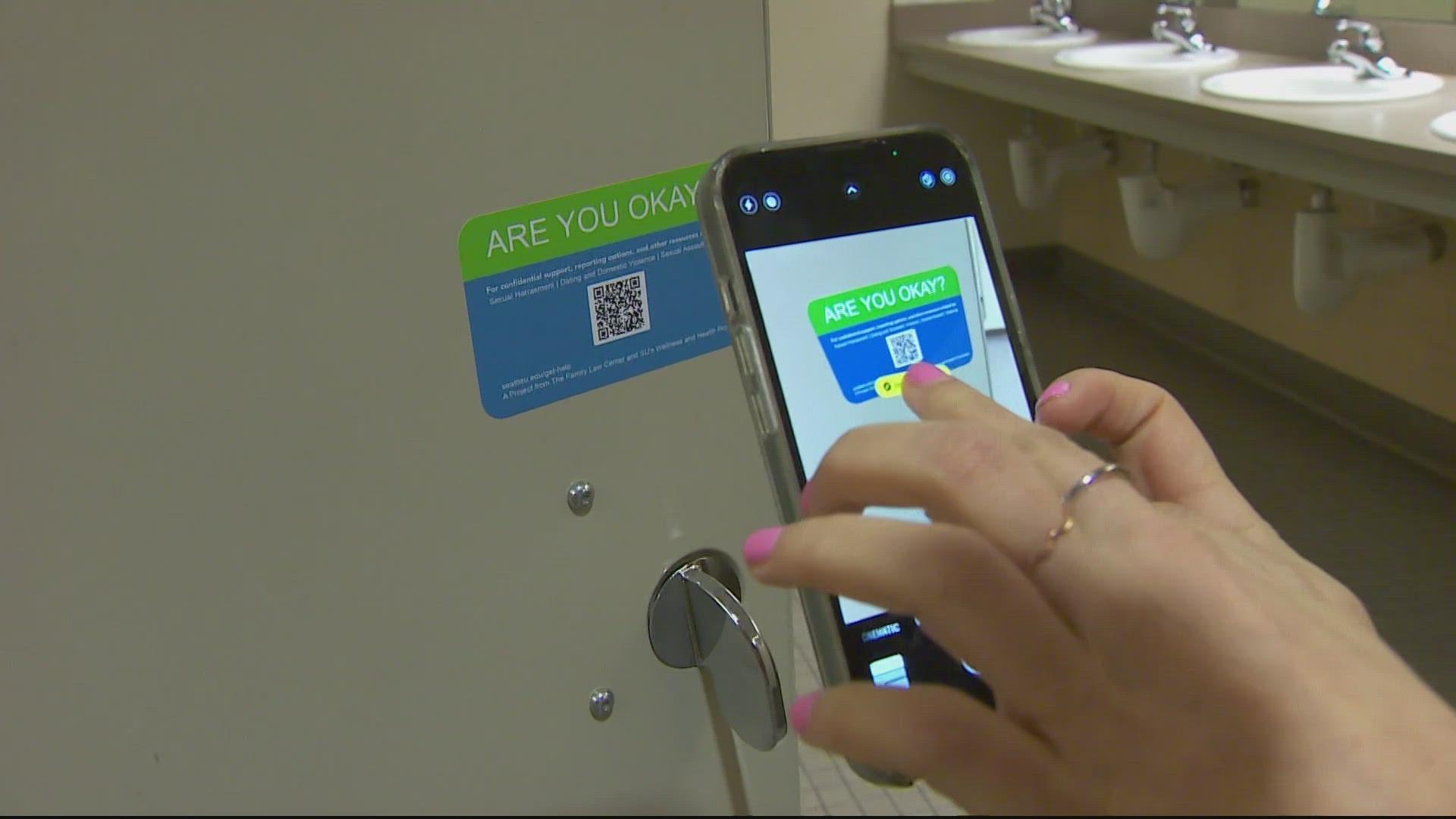SEATTLE — A new campaign launched by the Seattle University School of Law's Family Law Center hopes to raise awareness of legal help available on campus for survivors of domestic violence and sexual assault.
New stickers placed in bathroom stalls on campus contain a QR code linking to resources available-- including a form needed to get a protection order and guidance on other steps for safety.
Dr. Deirdre Bowen, Director of the Family Law Center and the Moccasin Lake Foundation Endowed Chair in Family Law, says the clinic looks over those forms and a practicum of law students and supervisors can help them with the steps that follow. That includes partnerships with nonprofits that offer wraparound services.
"First, there is a temporary order for that person to stay away from you, potentially exit the household, stay away from your work, your child's daycare, stay away from your pet- all of those things that create a safety boundary- so you can do what is necessary to create some stabilization in your life in the short term while you're in crisis," Dr. Bowen said. "What it doesn't do is guarantee that the abuser or person who engaged in the sexual assault will follow that order. So one of the things we always tell clients to keep in mind is that it's so important when you make the decision to engage in the legal system for a protection order, or a sexual assault protection order, to make a safety plan. Where can you exit to? Where can you make sure you won't be contacted by your abuser?"
Dr. Bowen says along with helping students, staff and community members right now, the clinic and practicum build a network of attorneys dedicated to helping on difficult cases.
Mary Bent participates in the practicum and serves as the co-president of the Native American Law Student Association and the managing editor of the American Indian Law Journal. She says she hoped to pursue law as a way to effect change.
"When I first came to law school I wanted to do more with what was happening with trafficking in Indian Country and the [Missing and Murdered Indigenous Women] movement and I wanted to know, how can a legal career help with that? What can we do to remedy the situation?" Bent said.
She learned about the practicum and clinic and began working to help others on campus -- and to learn skills she could bring with her after graduation.
"I am actually hoping to go back home to my reservation and work back there and assist both tribal and nontribal members with this situation because domestic violence is such a pandemic back there and on most reservations, and there's not enough representation, there's not enough help or outlets, especially when you're in a rural area," Bent said.
The clinic was made possible in part by the Moccasin Lake Foundation, which donated $5 million -- the largest single gift in the law school's history. The sticker campaign idea came from a trip through San Francisco's airport, where stickers were posted to assist people facing human trafficking.

